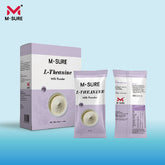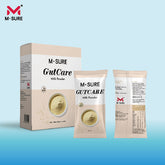The Impact of Nutrition of Immunity
by
BiotechAusway
30 Jul 2025
Nutrition–Immunity Connection
I. Protein: The "Building Blocks" of Immunity
Core Role
-
Antibodies and immune cells (e.g., leukocytes) are made of protein.
-
Adequate protein intake directly determines immune defense capacity.
-
Chronic protein deficiency impairs immune cell regeneration and slows recovery from infections.
Key Food Sources
-
Animal-based: Fish, eggs, dairy
-
Plant-based: Legumes, soy products (e.g., tofu)
II. Vitamins: Guardians of Immune Defense
| Vitamin | Function | Mechanism & Sources |
|---|---|---|
| A | Protector of mucosal barriers | Maintains skin and mucous membrane integrity; sources: carrots, liver |
| C | Immune cell "activator" | Enhances white blood cell phagocytic function; sources: citrus, leafy greens |
| D | Immune "signaling regulator" | Promotes immune cell differentiation; sources: sunlight, fish liver oil |
| E | Antioxidant "shield" for cells | Protects T-cells; sources: nuts, olive oil |
Key Finding:
-
High-dose vitamin C (1g/day for 2 months) significantly increases macrophage activity.
III. Minerals: Immune System "Controllers"
Zinc
-
Drives thymus development and T-cell differentiation
-
Deficiency linked to increased infection recurrence
-
Sources: Oysters, beef, pecans
Iron
-
Supports antibody production
-
Deficiency weakens resistance to infections
-
Sources: Animal blood, red meat, wood ear mushrooms
Selenium
-
Enhances immune surveillance through antioxidant properties
-
May reduce cancer risk
-
Sources: Brazil nuts, seafood
IV. Synergistic Factors
Essential Fatty Acids
-
Omega-3s (from fish oil, flaxseed) modulate immune balance
-
Help reduce excessive inflammation
Gut–Immune Axis
-
70% of immune cells reside in the gut
-
Dietary fiber supports a healthy gut microbiome
Hydration
-
Maintains mucosal moisture (e.g., in the respiratory tract)
-
Helps block pathogen entry
Warning Signs of Nutrient Deficiencies
-
Protein deficiency → Reduced antibody production, slow wound healing
-
Vitamin A/C deficiency → Frequent respiratory or digestive infections
-
Zinc/Iron deficiency → Stunted growth (children), chronic fatigue (adults)






